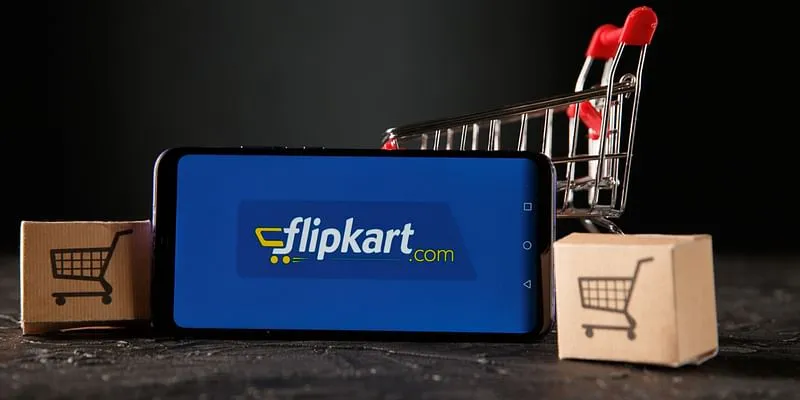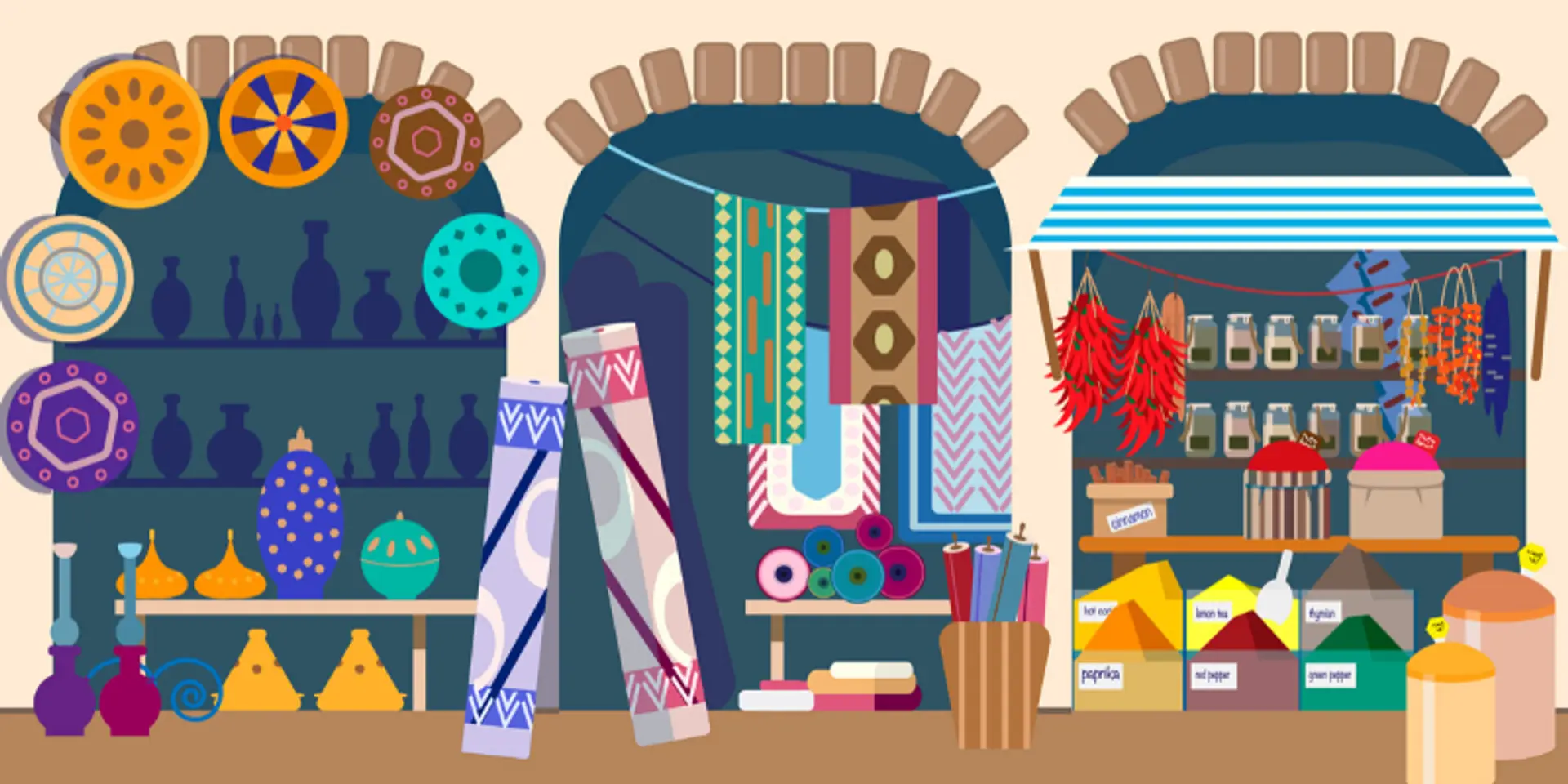Inside Flipkart's big bet on small businesses, entrepreneurs
Flipkart is attracting many young and upcoming brands, now backing new entrepreneurs by offering seller support services, training in fulfilment, and more.
What would happen if David and Goliath were to collaborate?
This is exactly what is happening in India’s ecommerce segment, and e-tail giant is leading the way.
At a time when everyone’s buying online and on the go, the ecosystem must evolve to ensure the co-existence of traditional and modern retail formats.
Flipkart is doing this by betting big on small businesses. The e-tailer is working several young and upcoming brands and retailers in the B2B and the B2C segment, offering them with continual counsel and on-ground support.
The seller support services include the basics and mechanics of online selling, reports on the analysis of sales, price recommendations, fulfilment services, account management, and packaging services. Brands also get an online selling guide and training to scale online.
As of date, Flipkart has more than one million small sellers registered on its platform. The COVID-19 pandemic accelerated the shift towards a digital world and triggered lasting changes in online shopping behaviour.
The lockdown forced many small businesses and MSMEs to get online, and many of them — realising that the future was digital — chose to get on board the e-tail train.

Flipkart sellers programme
Flipkart was there to handhold them and show them the way.
Nishit Garg, VP and Head of Fashion at Flipkart, says the company has focused on deep partnerships with ecosystem players, brands — both global and regional, as well as national sellers — to make sure that it has the best offerings for customers.
“We have really gone deep in integrating with our partners. This includes identifying opportunities for them to connect with consumers across India through our online marketplace, scale their online presence through omnichannel integrations, and ensuring that more of their stock is visible online. Further, we have enabled our partners with consumer insights, which helps them diversify their existing product portfolios. We have been able to do all of this at scale, and we feel very, very confident about the festive season,” he adds.
Flipkart’s backing eased the digital transition for MSMEs that were facing losses, with many of them making profits during the 2020 festive season amidst the COVID-19 backdrop.
In July 2020, B2B marketplace Flipkart Wholesale announced the expansion of its operations into 12 cities, including Ghaziabad, Faridabad, Mysore, Chandigarh Tricity, Meerut, Agra, Jaipur, and Greater Mumbai.
At the time, Adarsh Menon, SVP and Head, Flipkart Wholesale, had said, “As we enter the festive season, we are excited to be scaling up our offerings across 12 cities, aiming to create more opportunities for MSMEs and kiranas. From trendy Jaipuri kurtis to evergreen Mysore silk saris, we aim to help small businesses embrace the digital transformation and emerge as more robust businesses.”
The move is paying off. Flipkart closed in on Rs 50,000 crore in GMV during the Dussehra and Diwali season.
In December, the e-tail giant said it had recorded a 35 percent increase in the number of sellers on its platform as small sellers continued to go online. Most of these were from Tier-II and III India and comprised apparel, grooming, home decor, toys, and school/household supplies.
YourStory caught up with a few small brands to understand their experience while working with one of India's largest ecommerce companies.
T-shirts from Tirupur
Tirupur, Tamil Nadu’s textile and knitwear hub, contributes 90 percent of total cotton knitwear exports from India.
Madhusudhanan Shanmugan, who grew up in Tirupur and has previously worked at Cognizant in London and Chennai, has a T-shirt brand TRIPR.
While Madhu’s father had worked in the wholesale garment business for over two decades, he initially didn’t want to follow in the same footsteps.
But, the entrepreneur says his one-year stint in London inspired him to start something of his own and he had zeroed in on t-shirts.
In 2016, he decided to move back to India to offer quality T-shirts at the right price. Madhu began as a one-man army and started selling T-shirts, sweatshirts, and other men’s apparel with Flipkart.
Four years later, he has a 50-member team that just packs orders for Flipkart. He has surpassed all previous sales records and saw 100 percent growth in sales year-on-year. He says this was only possible with the help of Flipkart’s fulfilment support and quick processing.
"Thanks to the success, I now have retail stores — four in Chennai and one in Coimbatore. Online, we only sell on Flipkart. I have an entire manufacturing and production process now with an entire line dedicated to Flipkart. For a very long time, my family were just wholesale suppliers. Flipkart has not just made me an entrepreneur, but also built a national brand,” he says.
TRIPR today has revenues of more than Rs 2 crore, and Madhu has another big dream: a multi-storey office for his brand.

Madhusudhanan Shanmugan, Founder of Trippr
On to Mumbai
Flipkart is making it easier for young and new sellers to make the most of what ecommerce has to offer. The stories are many, varied, and traverse the length and breadth of India.
Sristi Mishra, a postgraduate in microbiology, moved to Mumbai but harboured dreams of starting her own jewellery brand while she worked at a laboratory. In 2016, she started making earrings and bangles with locally sourced raw materials after watching videos on YouTube.
Sristi was soon inspired to start her own venture after seeing people at a mall buy designs similar to what she made. She registered herself on Flipkart in 2017, and her brand JBNFashion Gallery has grown in popularity.
She now uses Flipkart insights to understand customers and keep her designs in line with the latest trends.
"I was so raw as an entrepreneur. I did not know what GST meant. Flipkart taught me about pricing, sales, managing orders, and packaging. My parents were government employees and are now happy that I am a businesswoman. Registering on Flipkart has changed my life,” Sristi says.
Sristi does not disclose her revenues but says she is able to sustain her business and take care of her family.

Sristi Mishra, JBNFashion Gallery
Helping artisans and craftspeople
In 2019, Flipkart’s Samarth programme was launched to help uplift and empower India’s many artisans, weavers, and micro-enterprises, and bring them into the ecommerce fold.
The main idea was to open up national market access for underserved communities and provide them access to a constantly growing pan-India customer base of more than 150 million.
Kalyan Krishnamurthy, CEO, Flipkart Group, had said:
“As a homegrown company, we are constantly innovating to find new ways to use ecommerce to uplift and empower all sections of society, especially MSMEs. These small businesses are the backbone of Indian economy, going back centuries. Flipkart Samarth will leverage increasing internet penetration in rural India to boost entrepreneurship and we are excited about the shared value we’re adding in the ecosystem with this initiative.”
Indha Craft is one such example. Part of a foundation called Literacy India, a non-profit, Indha Craft is helping women artisans scale up their handcrafted products such as bags, clothing, accessories, and home decor.
As part of Flipkart Samarth since 2019, Indha Craft has been able to improve processes, inventory, and turnaround time for shipping. The partnership helped the brand impact 350 artisans trained across several crafts.
Project Director Satya Prakash says ecommerce had been a ray of hope for several artisans during the pandemic.
He adds, “It has helped us sustain lives. Selling online has taught us to have global quality standards. We were not exporting yet, but we have learnt to make quality products. Flipkart has provided a large market for artisans through Indha Craft.”
As many as 35,000 sellers are part of the Samarth initiative, and Flipkart is keen to bring them all up to speed in all aspects of ecommerce.
Focus on small sellers
With Walmart's B2B business Best Price Cash and Carry stores branded as Flipkart now, the ecommerce major is bringing the power of tech to sellers too, working with small retailers to give them access to credit and wholesale prices for their purchases.
For example, Surender Kaul, who has been running a lingerie shop Eagle Point Fashion in Ghaziabad for 16 years. When buying from the wholesale market became a challenge during the COVID-19 pandemic, she decided to become a B2B member of Flipkart.
She began to use the app to order her inventory and would get a week's credit. Flipkart Wholesale became “a ray of hope during the pandemic”.
"Flipkart folk came to my shop and advised me on how ecommerce could help me stock up on the right inventory. They set up my account on the app and showed me how technology helps. The inventory helped me consistently serve my customers even during the pandemic," Surender says.
A rising trend
Flipkart is certainly not the only big fish in this market. One of its biggest competition is Amazon's Prione, which is on a journey to not just provide a marketplace for small brands, but is also digitising them. Prione has digitised close to 150,000 SMBs.
On the other hand, JioMart is also close on their heels. The RIL-owned platform acts as a centralised procurement and delivery channel between manufacturers and merchant partners.
The company enables digitisation of merchants through Jio PoS at the backend and JioMart app at the frontend. As for the pilot, Reliance Retail has commenced onboarding merchant partners in a limited geography.
According to BCG, Indian retailing is a $750 billion business opportunity, which will reach $1 trillion in 2025. With 10 million kirana stores and 40 million SMBs, digitising is the name of the game for the future.
And it’s clear that Flipkart is set to take on Amazon and Reliance Jio.
Edited by Teja Lele and Saheli Sen Gupta



![[Startup Bharat] Small towns like Kasaragod, Bahraich, Dhenkanal, and others are big on WhatsApp ecommerce](https://images.yourstory.com/cs/2/70651a302d6d11e9aa979329348d4c3e/Whatsapp-Pay-2-1582631132190-1608630082381.jpg?fm=png&auto=format&h=100&w=100&crop=entropy&fit=crop)







